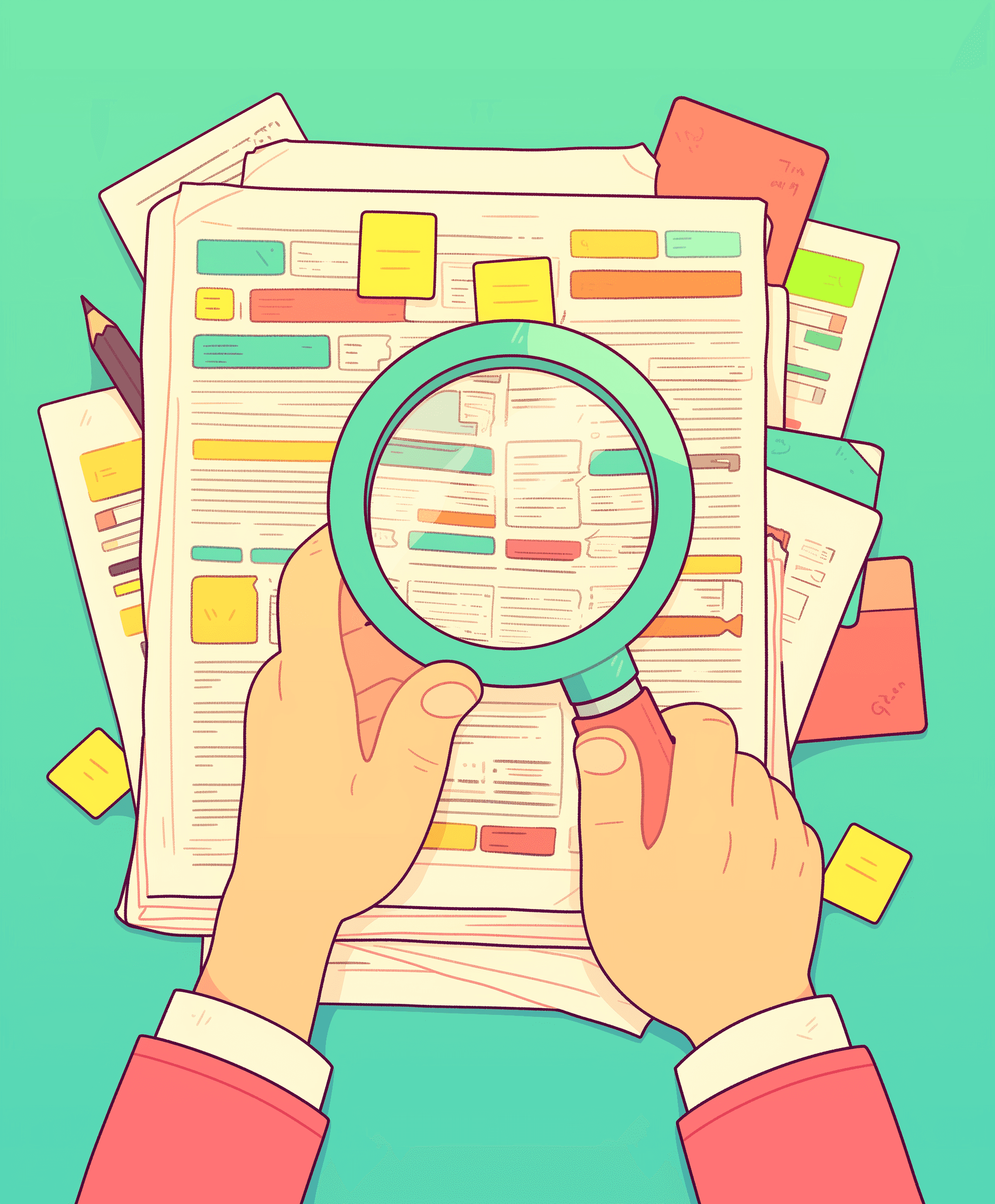Psychometrics
Dec 17, 2021
How to Use Personality Assessments to Improve Team Dynamics
Effective teamwork is essential for organizational success, and one of the best ways to enhance team dynamics is through personality assessments. Tools like the Myers-Briggs Type Indicator (MBTI), DISC, and other proprietary assessments can offer insights into individual preferences, communication styles, and motivators. By understanding these differences, organizations can create a collaborative work environment, reduce conflict, and ultimately improve workplace culture. Here’s a guide to using personality assessments to optimize team performance.
1. Understanding Personality Assessments: A Brief Overview
MBTI (Myers-Briggs Type Indicator) divides individuals into 16 personality types based on four dichotomies: Extraversion/Introversion, Sensing/Intuition, Thinking/Feeling, and Judging/Perceiving. Each type represents a unique approach to communication, decision-making, and work preferences. MBTI is particularly useful in helping teams understand diverse perspectives and fostering empathy among members.
DISC focuses on four primary traits: Dominance, Influence, Steadiness, and Conscientiousness. Each trait provides insight into how individuals approach tasks, communicate, and react to challenges. DISC can help teams identify members who may excel at leadership, adaptability, or analytical thinking, allowing for balanced roles within a team.
2. Enhancing Collaboration through Self-Awareness
Personality assessments encourage self-awareness by helping individuals recognize their strengths and areas for improvement. For example, a team member who scores high in Conscientiousness on DISC might naturally focus on detail-oriented tasks, while someone high in Influence may bring creativity and enthusiasm to brainstorming sessions. This understanding can reduce friction and make team members more open to leveraging each other’s strengths.
Tip: After administering a personality assessment, hold a team meeting to discuss the results. Encourage team members to share how they prefer to communicate, what they need to stay productive, and how they best contribute to group projects. This exercise promotes transparency and builds trust within the team.
3. Reducing Conflict with Improved Communication
One of the primary causes of workplace conflict is miscommunication. Personality assessments provide valuable insights into how team members express themselves and respond to stress. For instance, an MBTI-based assessment might reveal that introverted team members prefer to process information internally before sharing ideas, while extroverts thrive on immediate feedback and discussion. Recognizing these differences can help team members adjust their communication styles to better suit others’ preferences.
Tip: Pair team members with complementary communication styles for specific projects. A thoughtful communicator and a direct communicator, for example, may balance each other well in high-stakes projects, as each can provide different perspectives and approaches to problem-solving.
4. Building a Positive Team Culture
Personality assessments contribute to a culture of respect and appreciation by highlighting each member's unique contributions. DISC, for instance, can reveal that someone with high Steadiness brings reliability and consistency, which balances the enthusiasm of high-Influence team members. By understanding and appreciating these differences, teams can work more harmoniously.
Tip: Reinforce team-building by recognizing and celebrating individual strengths. Regular feedback sessions focused on each member’s contributions can boost morale, build confidence, and create a more inclusive culture.
5. Role Alignment and Development Opportunities
By aligning roles with personality traits, managers can create more effective teams. For example, individuals with high scores in Judging (MBTI) or Conscientiousness (DISC) may excel in project management, where structure and organization are key. Meanwhile, those high in Extraversion (MBTI) or Influence (DISC) may perform better in client-facing or collaborative roles.
Tip: Use personality assessments as a part of career development. When employees are placed in roles that suit their strengths, they are more likely to be engaged and motivated. Regular assessments can also reveal growth areas, allowing for tailored development plans that support individual and team success.
6. Applying Assessments to Remote and Hybrid Teams
In remote or hybrid work settings, communication and collaboration can be challenging. Personality assessments can help bridge these gaps by providing insights into preferred communication styles. For example, some team members may thrive in video meetings, while others may prefer written updates to process information. Recognizing these preferences can make virtual teamwork smoother and more inclusive.
Tip: Consider using DISC or MBTI results to set team norms in remote environments. Outline preferred methods for sharing updates, scheduling meetings, and resolving conflicts, ensuring that all team members feel included and understood.
Conclusion
Personality assessments like MBTI and DISC offer a structured approach to understanding individual and team dynamics, providing valuable insights for creating cohesive, productive teams. By fostering self-awareness, improving communication, aligning roles, and reinforcing a positive culture, these assessments can be instrumental in optimizing team performance. When used thoughtfully, personality assessments are a powerful tool for building stronger, more adaptable, and collaborative teams that contribute to a positive and effective workplace culture.
More blogs to read

Digital transformation
Unleashing the Power of Digital Transformation: ASSESS’s Organizational Assessment Approach
ASSESS’s digital transformation assessment provides a comprehensive roadmap for digital transformation, focusing on digital readiness and digital maturity.
Continue reading

Ability assessment
Unlocking Talent Potential with ASSESS Focus: A Revolutionary Cognitive Ability Tool
ASSESS Focus, a cognitive ability assessment tool, designed to empower recruiters and HR professionals with meaningful insights into candidates’ ability.
Continue reading

Personality assessment
Exploring the 16 Personalities: A Guide to Understanding Yourself and Others
The MBTI sorts personality into 16 types, each represented by a unique four-letter code.
Continue reading

Personality assessment
Understanding the Big Five Personality Traits and Their Impact on Success
The Big Five—Openness, Conscientiousness, Extraversion, Agreeableness, and Neuroticism—capture the core dimensions of personality.
Continue reading

Sales assessment
Building Success: Essential Sales Competencies for High-Performing Teams
Sales competencies—core skills, behaviors, and attributes that influence sales performance—are critical for developing, and retaining top-performing salespeople
Continue reading

Sales assessment
Unlocking Sales Potential: How Assessments Drive Recruitment and Performance
Skills like communication, persuasion, and resilience are vital, but they’re not always easy to gauge in an interview.
Continue reading

Sales assessment
Enhancing Recruitment and Development with Sales Assessments
A sales assessment is a psychometric tool designed to evaluate traits, competencies, motivators, and cognitive abilities relevant to sales roles.
Continue reading

Assessment center
Types of Assessment Center Exercises
This post provides a list of potential assessment center exercises that could be used in talent selection or development.
Continue reading

Assessment center
Designing an Effective Assessment Center
Assessment Centers offer a structured, immersive approach to evaluate candidates' skills, behaviors, and potential, providing a rich basis for decision-making.
Continue reading

Leadership
What is Leadership Development Assessment?
Leadership assessment for development focuses on identifying a leader’s strengths, gaps, and growth potential to guide targeted development efforts.
Continue reading

Career orientation
Most Relevant Career Orientation Assessment Frameworks
Career orientation assessments provide valuable insights into an individual’s strengths, preferences, and interests.
Continue reading

Employee engagement
Top Five Employee Engagement Drivers: Backed by Research
Employee engagement is critical for organizational success, impacting productivity, retention, and overall company performance.
Continue reading

Assessment
Talent Assessment Using ISO 10667: Ensuring Quality and Consistency
To standardize talent assesment practices and ensure their quality, ISO 10667 provides a comprehensive framework.
Continue reading

Talent acquisition
How to Select the Right Assessment Tools for Your Organization
Choosing the right assessment tools is crucial for organizations aiming to make informed decisions about recruitment, employee development, and talent selection
Continue reading

Recruitment
Hiring Millennials: How Talent Assessments Help Build an Independent and Innovative Workforce
As millennials continue to make up a larger share of the workforce, companies must adapt their hiring strategies to attract and retain this dynamic generation.
Continue reading

Competency
ASSESS Grammar Test: Boosting Workplace Communication Skills
Proper grammar is essential for conveying messages accurately, whether in emails, reports, or client interactions.
Continue reading

Competency
Manages Ambiguity: Navigating Uncertainty with Confidence
In today’s dynamic business environment, leaders often face situations where information is incomplete, outcomes are uncertain, or events unfold unpredictably.
Continue reading

Competency
Decision Quality: A Cornerstone of Effective Leadership
Decision quality represents a leader’s ability to make well-considered, timely, and effective decisions, even in complex or ambiguous situations.
Continue reading

Competency
Instills Trust: A Key Leadership Competency
Trust is a cornerstone of effective leadership and organizational culture.
Continue reading

psychometrics
Can We Assess Toxic Workplace Traits?
As we become more attuned to the detrimental effects of toxic styles, the importance of assessing behaviors that contribute to toxicity has become critical.
Continue reading

Ability assessment
The Power of Cognitive Ability Tests in Talent Management
Cognitive ability tests are effective tools for evaluating potential to excel in roles that demand analytical thinking, quick learning, and problem-solving.
Continue reading

360 degree feedback
360-Degree Feedback: Benefits, Challenges, and Best Practices
360-degree feedback has become a popular tool in talent development, particularly for enhancing leadership skills and fostering continuous improvement.
Continue reading

Psychometrics
How to Use Personality Assessments to Improve Team Dynamics
Effective teamwork is essential for organizational success, and one of the best ways to enhance team dynamics is through personality assessments.
Continue reading

Psychometrics
The Science Behind Psychometric Testing: How Assessments Drive Better Hiring Decisions
The Science Behind Psychometric Testing: How do assessments drive better results using scientific methods, such as validity and reliability testing.
Continue reading

Organizational surveys
Measuring Organizational Health: Key Metrics and Why It Matters
Discover how measuring organizational health through key metrics like engagement, leadership, and culture alignment can boost long-term success and adaptability
Continue reading

Assessment tools
Assess International vs. AssessFirst: A Comparative Overview
Assess International vs. AssessFirst: A Comparative Overview
Continue reading

Personality assessment
The 16 MBTI Personality Types: A Detailed Overview
MBTI categorizes people into 16 distinct personality types based on four key dichotomies. They shape how people interact with the world.
Continue reading

Cognitive ability
Understanding Cognitive Ability Assessments: Unlocking Mental Potential
Cognitive ability assessments are tools that measure the intellectual capacity, such as reasoning, attention, memory, and learning.
Continue reading

Coaching
The Role of Assessment in Coaching: Unlocking Potential through Insight
One of the primary benefits of using assessments in coaching is that they promote self-awareness. Assessments provide objective, data-driven insights
Continue reading

Personality assessment
Unlocking Self-Awareness with the Enneagram Test: A Path to Personal Growth and Understanding
Explore the Enneagram test, a powerful tool for self-awareness, personal growth, and improving relationships through understanding motivators and behaviors.
Continue reading

Personality assessment
Understanding the DISC Personality Assessment: A Pathway to Better Communication and Teamwork
Discover how the DISC personality assessment improves communication, enhances teamwork, and strengthens relationships by understanding behavior styles.
Continue reading

Personality assessment
The Importance and Value of the MBTI Assessment: A Tool for Self-Awareness and Team Dynamics
Discover the importance and value of the MBTI assessment in fostering self-awareness, improving communication, and enhancing team dynamics.
Continue reading

Talent Management
Understanding Generation Z: Engaging the Restless Workforce
Generation Z, born roughly between 1997 and 2012, is entering the workforce with a unique set of expectations and challenges. Companies seeking to engage and retain Gen Z talent need to understand what drives this generation.
Continue reading

Talent management
Why do employees stay at your company
Talent Management, embodied in attracting, retaining, and motivating superior employees is a critical issue as it is amongst the top concerns for modern cor ...
Continue reading

Career
Unlocking Career Success with ASSESS Career Orientation: A Comprehensive Approach
Choosing the right career is one of the most significant decisions you will make in life. It shapes not only your professional trajectory but also impacts y ...
Continue reading

Assessment
What is an Assessment Center?
The term assessment center has been widely used in the fields of industrial psychology and human resources management for more than 50 years ...
Continue reading

Assessment
Personality Psychology & Job Performance
Personality psychology is a branch of psychology that focuses on defining and explaining personality as well as identifying individual differences between p ...
Continue reading

Leadership
Chameleon Leader: Situational leadership model
Leadership theory has been studied for many years. There are many different theories that define leadership from different perspectives, all expressing thei ...
Continue reading

Career
Understanding your core values as a human
You place great emphasis on understanding the values that shape your thoughts and lifestyle. Your quest for finding meaning in life drives you to seek align ...
Continue reading

Tools
Can Values Be Measured Using Assessment Tools?
The question of whether values can be accurately measured through assessment tools has been a topic of debate in psychological, organizational, and educatio ...
Continue reading

Phsycometrics
Understanding the different types of psychometric testing categories
Psychometric testing has become a valuable tool in various fields, including recruitment, personal development, and career orientation
Continue reading

Talent
Talent abiligy post pandemic
While many businesses have withstood the economic shock brought on by Covid19, nonetheless making amendments within the organization’s practices and strateg ...
Continue reading

Products
The role of ASSESS OCM in recruitment and professional development
In today’s fast-evolving workplace, organizations are continuously seeking ways to optimize their talent management processes. One of the most effective too ...
Continue reading

Psychometric, Assessment
How to Prepare for a Psychometric Assessment
Psychometric assessments are becoming a common part of the recruitment process and personal development programs. These tests measure a variety of cognitive ...
Continue reading

Psychometric, Assessment
What is a Psychometric Assessment Test?
Psychometric assessment tests have become an essential tool for businesses, educational institutions, and individuals seeking to understand personality trai ...
Continue reading
Individual Development
